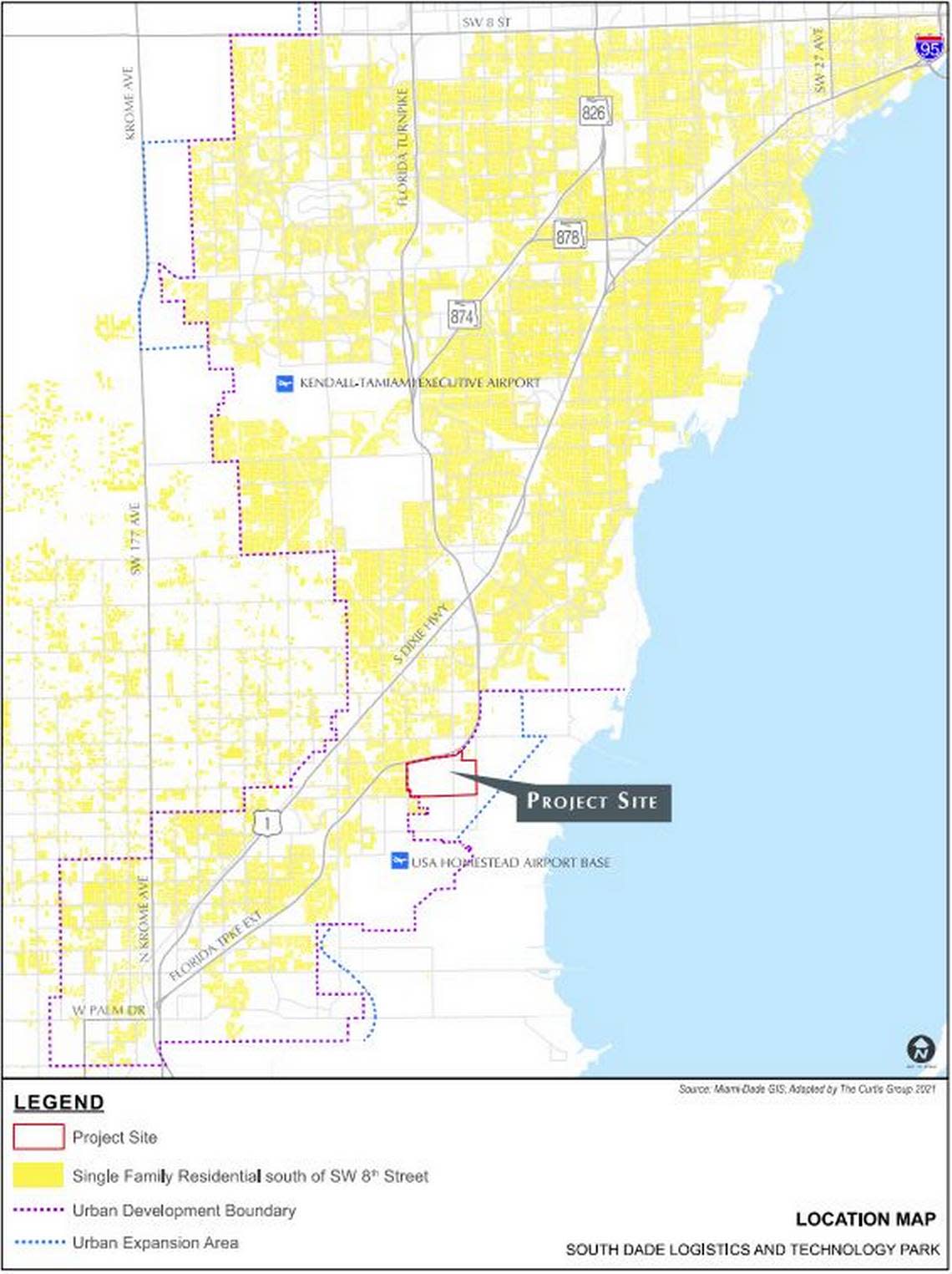Miami-Dade approved a controversial project near Homestead. It might have to start over
A Florida agency isn’t budging in its conclusion that Miami-Dade County messed up the approval process on a 380-acre industrial park outside Homestead, a standoff that may force developers to start again in securing the votes needed to build.
The state Department of Economic Opportunity, which oversees land regulations, said this week it won’t accept the county’s final approval of the South Dade Logistics and Technology District, a planned commercial complex in South Miami-Dade.
READ MORE: Miami-Dade commission OKs project that critics say threatens Everglades restoration
Backers tout the promise of 7,000 new jobs in an area where many people are forced to make long commutes for work. Opponents say the project will create more sprawl while impeding Everglades restoration.
To approve it last fall, county commissioners voted to expand Miami-Dade’s Urban Development Boundary (UDB) over Mayor Daniella Levine Cava’s veto.
The UDB divides suburban development from the Everglades and much of the county’s farm belt, and the project would go up on land the federal government has been considering for an Everglades project.

At issue is the extended approval process developers Stephen Blumenthal, David Brown and Jose Hevia needed to flip two commissioners who initially opposed the project — Jean Monestime and Raquel Regalado — in the eight months before the final vote on Nov. 1.
In January, Economic Opportunity lawyers notified Miami-Dade that the process improperly used three hearings, and the state would only accept as approved the small portion of the project that commissioners voted on in April after the second hearing. In the Jan. 26 letter, the agency said the county exceeded a 180-day deadline that expired at the end of October to submit the final amendment to Miami-Dade land rules needed to build the project, including expanding the UDB.
READ MORE: In quest to move the UDB, developers get multiple chances to win final vote
The crucial November vote, authorizing a UDB expansion for the first time since 2013, was the start of a new approval cycle that still needs another commission vote to amend Miami-Dade’s development rules and allow the project to move forward, Economic Opportunity’s acting general counsel, Brandon White, wrote in a March 7 letter to the county’s legal department.
Despite protests from county lawyers, White said the agency found no reason to “recede from or alter” the conclusion reached in January, with Miami-Dade still needing another vote to give final approval to the amendment in the county’s land-use plan that the South Dade developers requested to build the project.
“Moving forward,” White wrote, “the County should act by choosing to adopt, adopt with changes or not adopt the proposed amendment.”
The Nov. 1 vote occurred weeks before five term-limited commissioners left office, meaning developers and their opponents would be fighting for votes with a new board. Regalado remains in office, but Monestime was replaced with Marleine Bastien.
Opponents of the project see the ruling as a chance to redo a fight they narrowly lost in November.
READ MORE: What’s the Urban Development Boundary, and what does it mean for Miami-Dade County?
“The State has given its final answer: The County waited too long to act,” said Paul Schwiep, a Miami lawyer helping in a legal challenge of the UDB expansion. “Under the statute, the application is back.”
The legal team behind the South Dade project contends the administration of Gov. Ron DeSantis is wrong in its interpretation of the state rules governing the county’s approval.
“The County’s application review process was followed and that process was not in conflict with Florida law,” the developers’ statement said. “In fact, the Miami-Dade Commission held more public hearings than were required and our application was amended due to the concerns expressed by residents and activists.”
